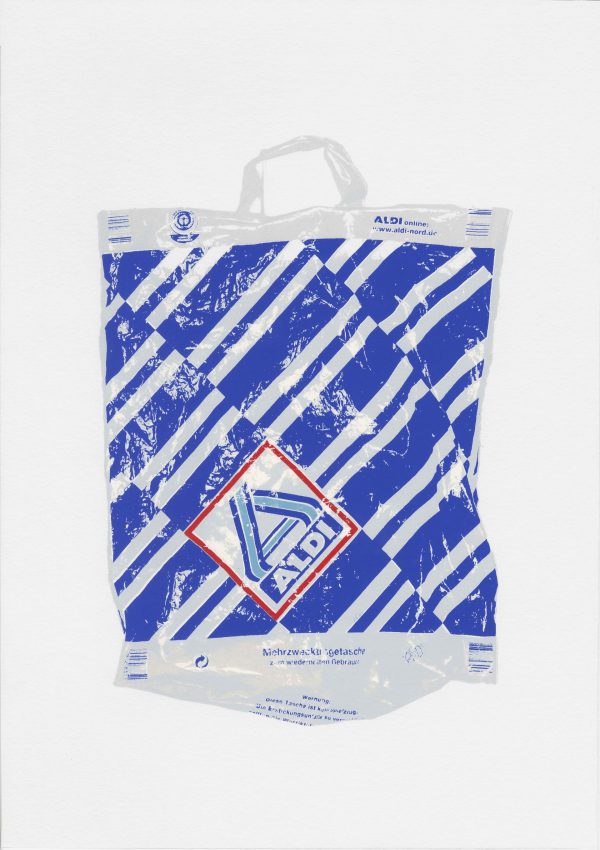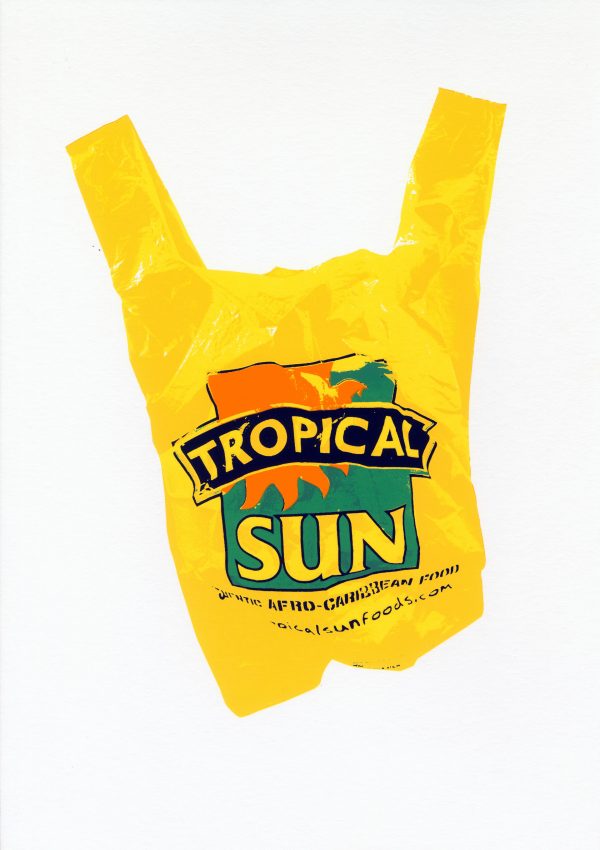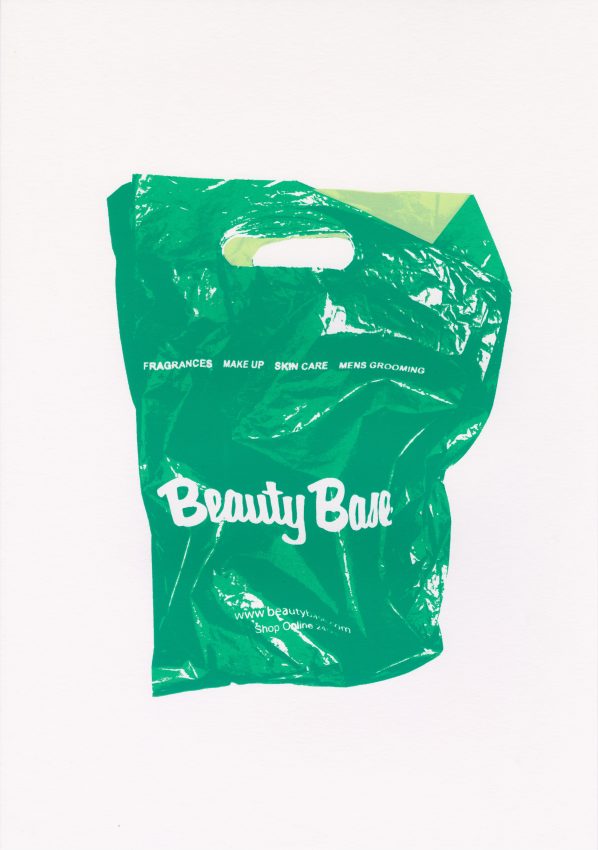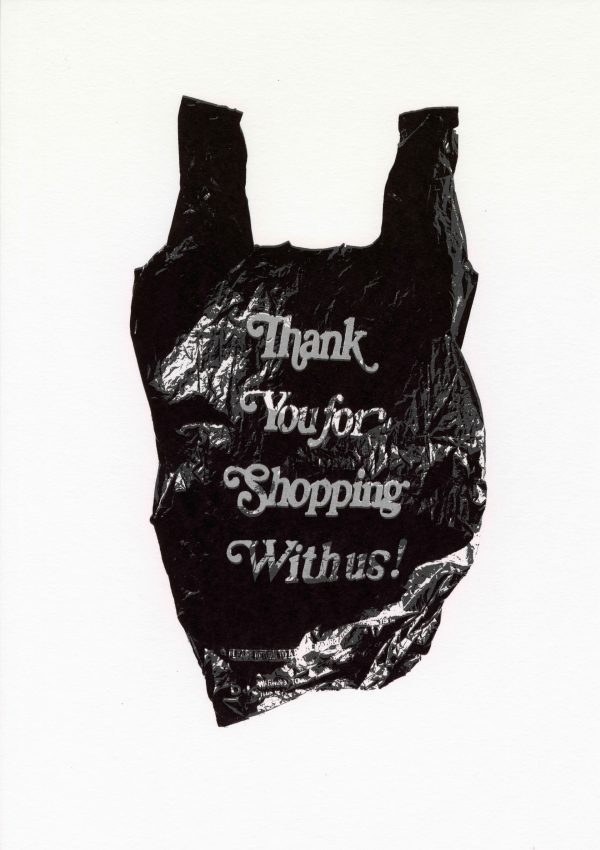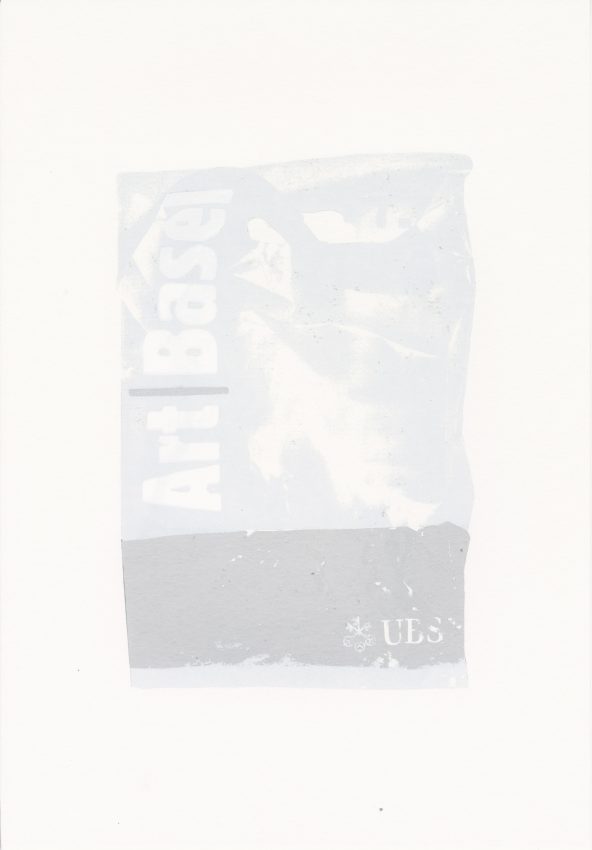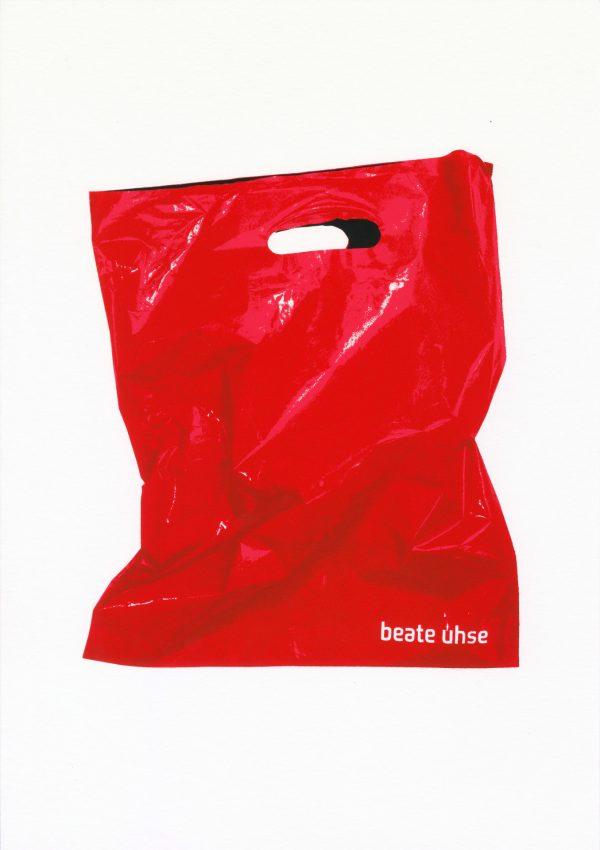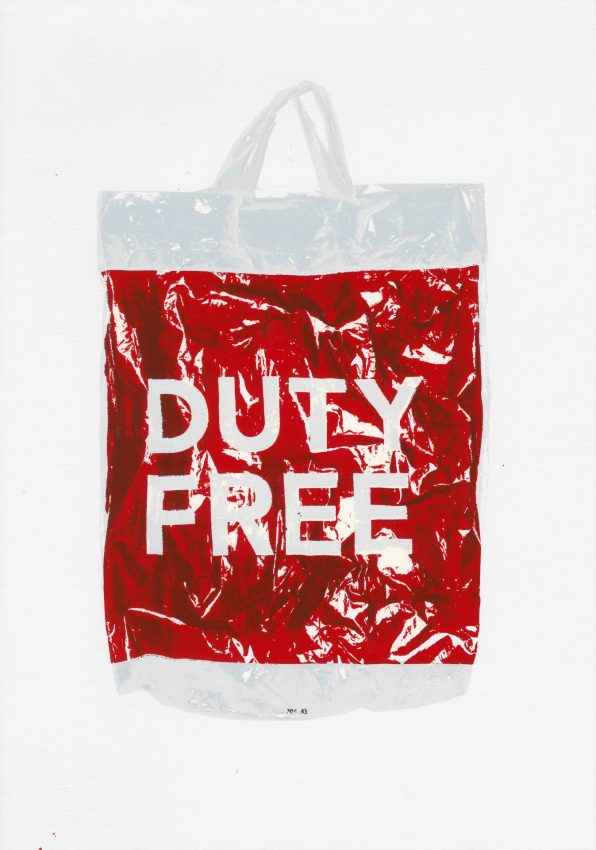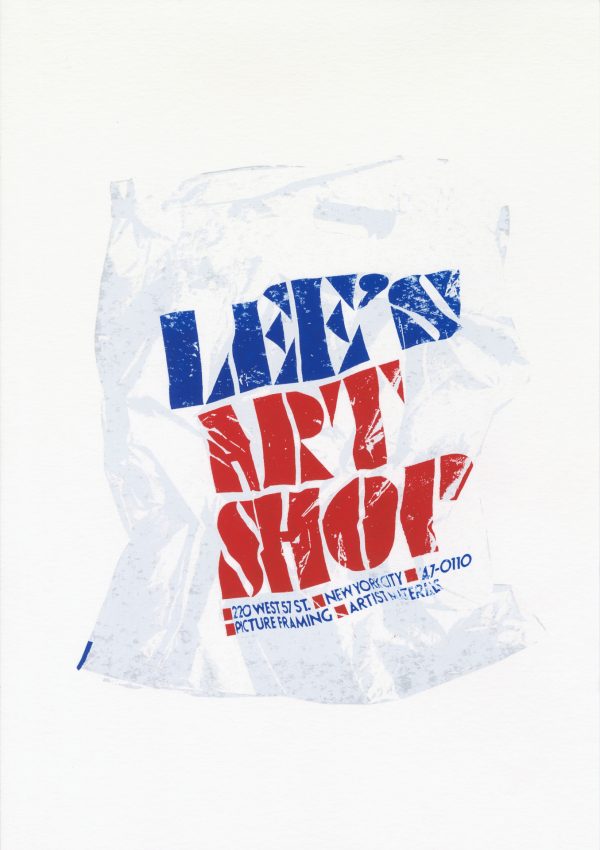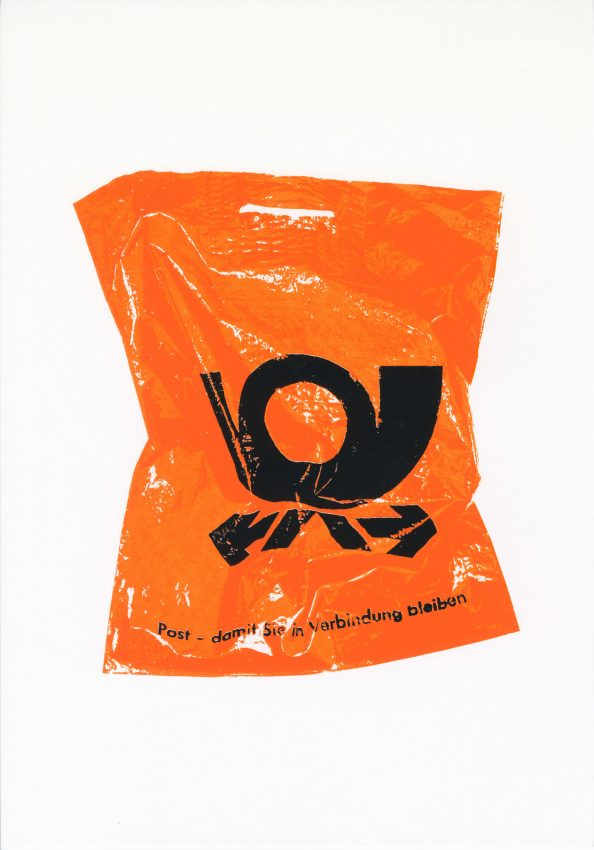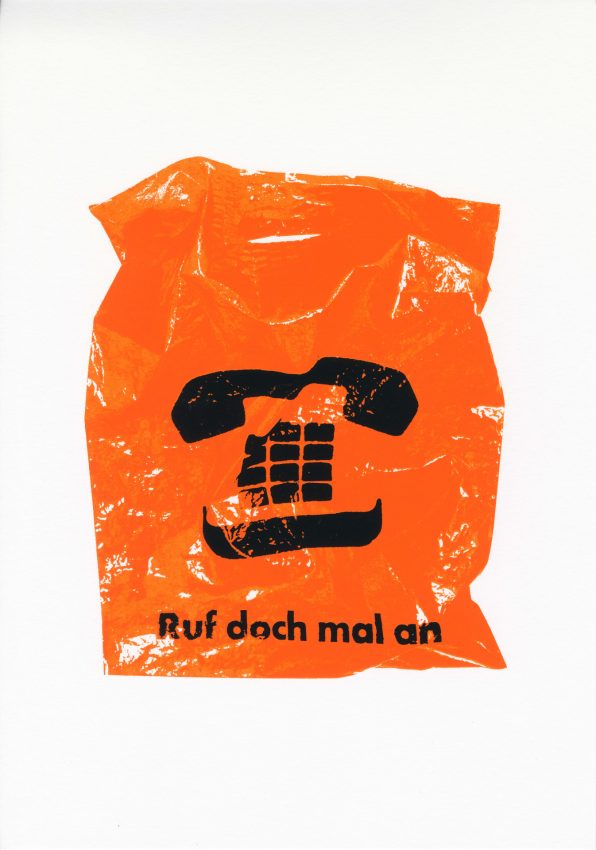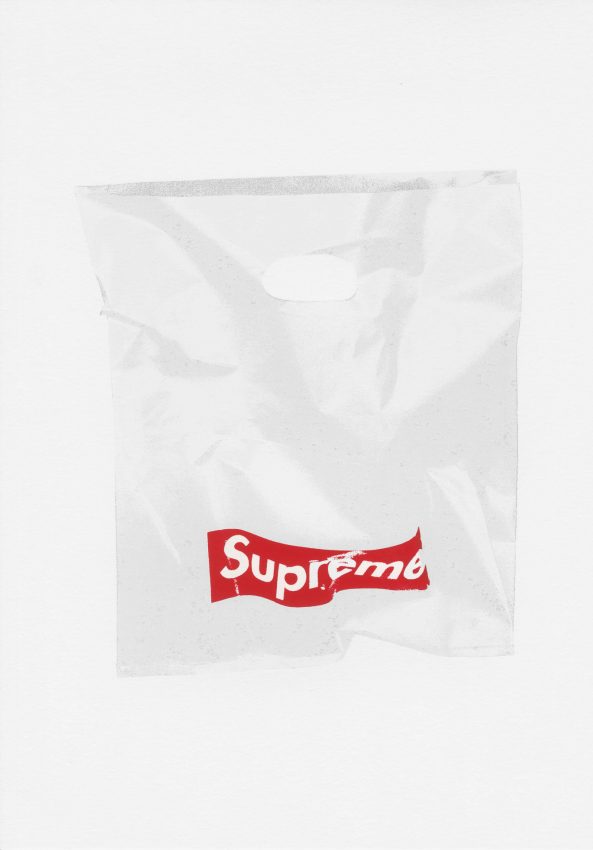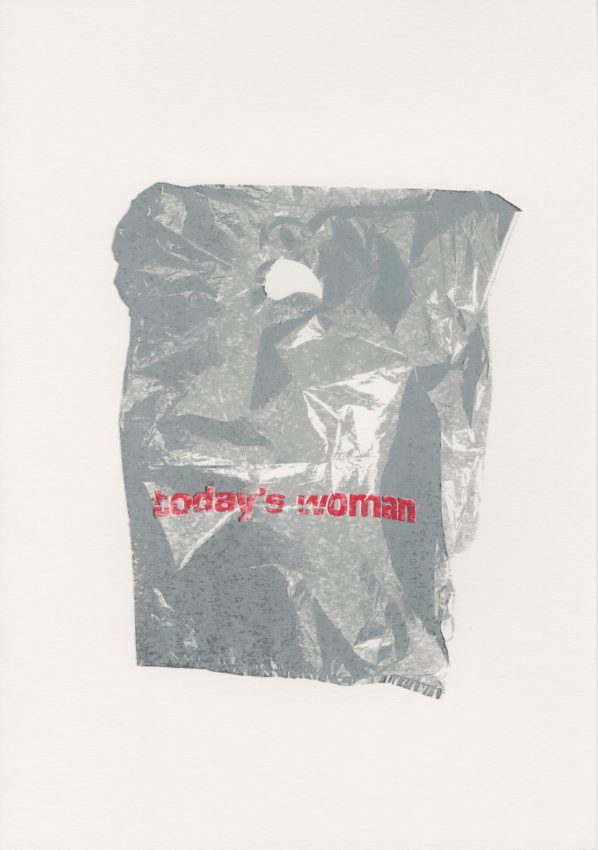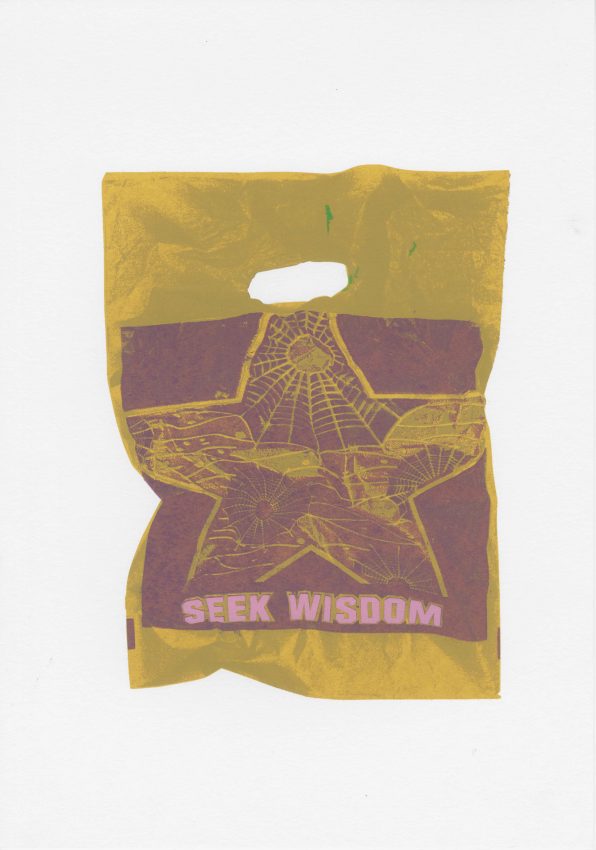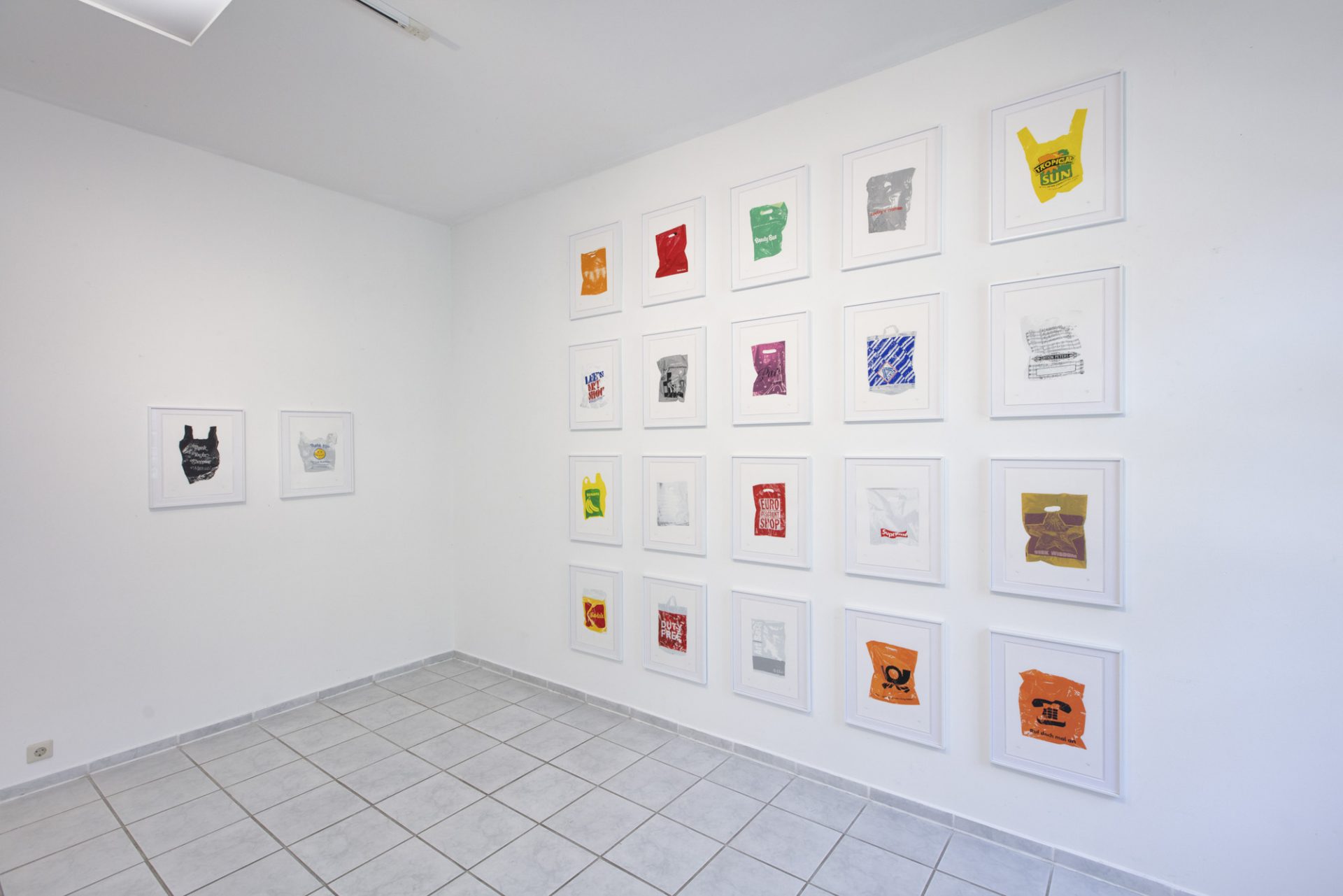
Thank You For Shopping
Tobias Molitor
2 Sep 2022 – 30 Apr 2023
Cabinet
Opening: 2 Sep 2022, 7:30 p.m.
“Do you need a receipt? A bag?” A habitual offer we often turn down. If accepted, we eventually throw them away or at best misuse them. Tobias Molitor considers to these supposedly banal objects in Thank You For Shopping and places them in a museum context, seeking irritation and bewilderment.
In contrast to the usual objet trouvés, i.e. found and unaltered everyday objects, Molitor reproduces and documents plastic bags and cash register receipts in an elaborate silkscreen process. He uses the classic art genre of printmaking, alluding to the industrial character of mass-produced goods and their endless repetition. The bags nevertheless hint at their countries of origin and the lives of those who carry them. Molitor takes us on a tour from a North German discounter to an now-defunct artist’s supply store in New York.
The larger than life receipts offer an autobiographical element where the private purchase becomes public. By examining the time and place of a receipt we ourselves can reflect on our own experience. The material Molitor uses – durable cotton instead of fading thermal paper – is a clear rejection of fast-moving consumerism and transience. The everyday object becomes both a cheeky find and a memento–the traces of the everyday take center stage with all their unexpected poetry.
